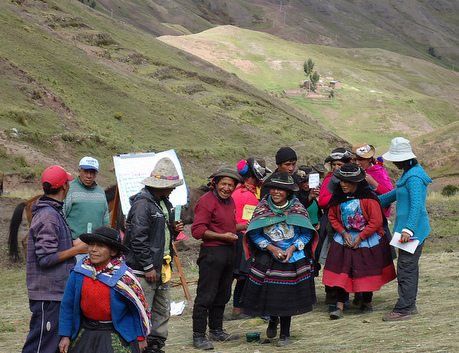
Source: CGIAR
Sustainably feeding the world’s growing population in the face of limited land and water resources and growing challenges from climate change will require developing climate resilient food production systems. The knowledge and resources essential for these innovations will often need to be harnessed from beyond the modern labs and experimental fields.
“Researchers will also need to draw from the diversity of crops, animals, other organisms, practices and knowledge prevalent in many indigenous communities of the world” says Anita Regmi, Senior Science Officer for Policy and Economics for the CGIAR Consortium. “Working together with partners in these countries and communities (with due consideration of their sovereign rights) traditional knowledge can be developed into scalable innovations designed to address specific food security concerns which can be made more widely available.”
Many CGIAR scientists are consequently involved in research with indigenous peoples, and the traditional knowledge (‘TK‘) associated with agriculture. CGIAR therefore bear a serious responsibility with regard to the way in which TK is acquired and used. Traditional knowledge is subject to many threats: erosion from failure to pass on from generation to generation, changing land use, climate change, migration and biopiracy to name just a few. Rice varieties in Sri Lanka for example, decreased from 2,000 in 1959 to less than 100 in 2012, and just 7 companies hold three quarters of patents in genetic resources and transformation technologies.
Of principal interest to CGIAR however, are farmers, local seeds and farming practices although the nature and scope of traditional knowledge is extremely broad and covers many areas outside of CGIAR’s work. There are already many examples of good practices in place around CGIAR that deal with the use of TK in research. Here are just a couple to illustrate how working with a focus on traditional knowledge can advance research in a way that can maintain, respect and recognize the valuable input from farmers...Read more
